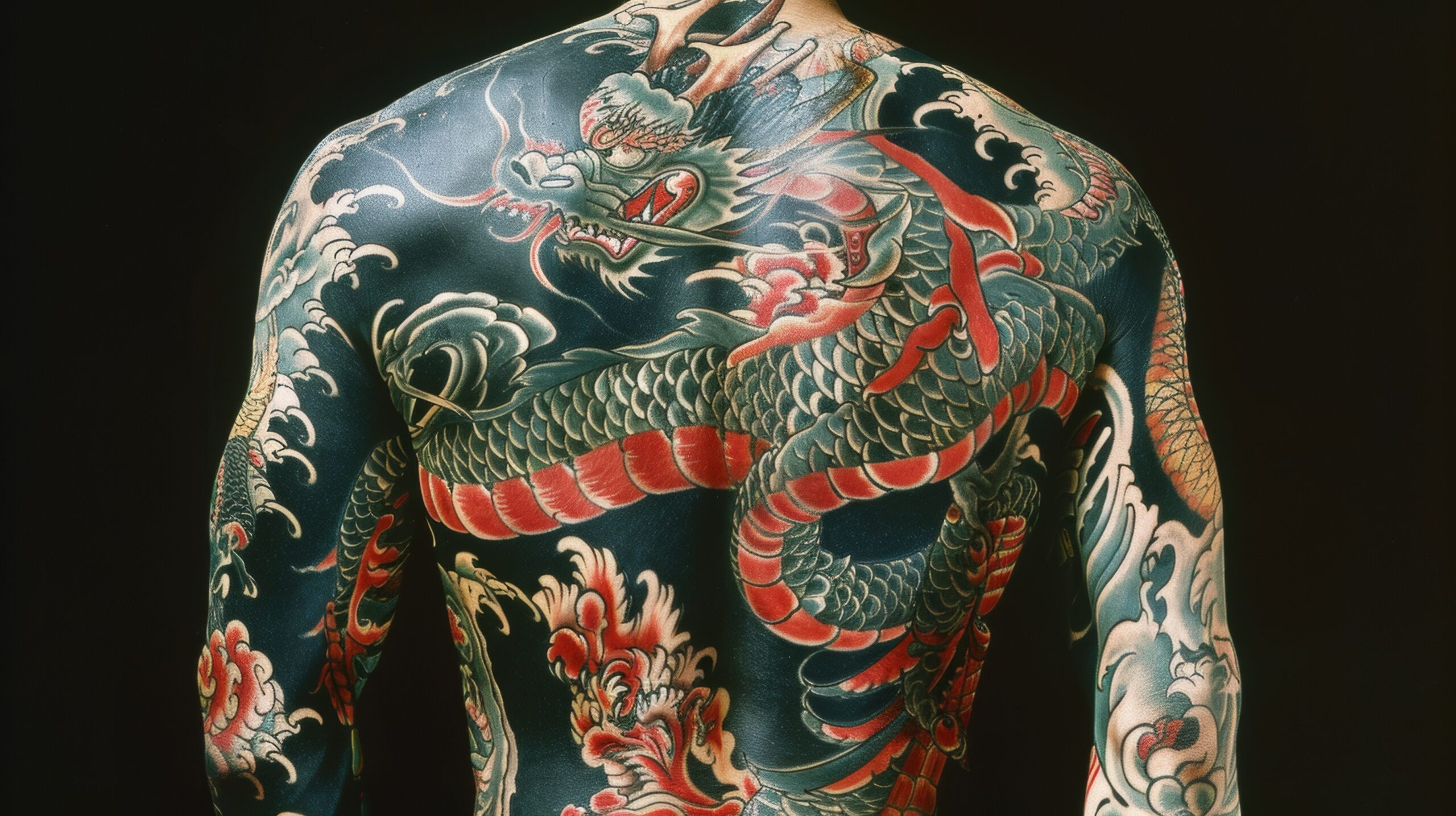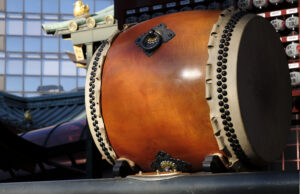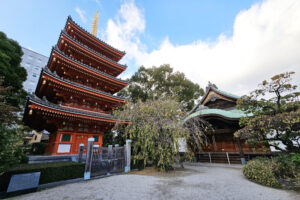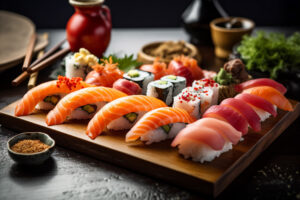In the intricate labyrinth of global art forms, Japanese tattoo art, or Irezumi, holds a unique and venerable position. With its deep roots entwined in the country’s history, mythology, and culture, this art form transcends mere aesthetics to embody a rich tapestry of symbolism and tradition. As we delve into the world of Irezumi, we uncover the layers that compose its essence – from the ancient tools and techniques that breathe life into each design, to the modern masters who continue to evolve the craft. This journey through the world of Japanese tattoo art reveals not only the beauty and complexity of Irezumi but also its enduring mystique that captivates enthusiasts and scholars alike.
Prologue to the Japanese Tattoo Tradition
The tradition of Japanese tattooing extends deep into the annals of history, with archaeological evidence suggesting its existence since the Jomon period. Initially, tattoos served as spiritual protections and symbols of status before evolving into punitive marks in the Edo period. This dual nature of Irezumi, both sacred and stigmatized, set the stage for its complex cultural significance. The Edo period also witnessed the flourishing of ukiyo-e, woodblock prints that heavily influenced Irezumi designs. As outcasts and laborers adorned themselves with elaborate tattoos, they reclaimed their bodies and narratives, embedding personal and collective identities into their skin.
Unraveling the Symbolism Behind the Ink
Japanese tattoo art is a language written on the skin, each motif laden with meaning and history. Dragons, koi fish, and cherry blossoms are not merely decorative but carry deep symbolism, from perseverance to the ephemeral nature of life. The imagery in Irezumi often draws from folklore, with heroes and mythical creatures serving as popular motifs. This symbolism extends beyond aesthetics, offering protection, luck, and a physical embodiment of personal or philosophical ideals. The intricate interplay of these symbols within Irezumi allows for a nuanced expression of identity and belief.
The Masters of Irezumi: Japan’s Tattoo Legends
The legacy of Irezumi is maintained and evolved by its masters, artists who dedicate their lives to perfecting this craft. From Horiyoshi III to Shige, these masters not only possess unparalleled skill but also a deep respect for tradition. Apprenticeships, often lasting decades, ensure the transmission of knowledge and techniques from one generation to the next. These tattoo artists are revered not just for their technical expertise but for their role in perpetuating the cultural and spiritual dimensions of Irezumi, navigating the balance between innovation and tradition.
The Evolution of Tattoo Art in Japanese Society
Irezumi’s journey through Japanese society mirrors the nation’s own transformations. Once a marker of criminals and outcasts, it has gradually emerged as an art form celebrated for its beauty and craftsmanship. The global fascination with Japanese culture has propelled Irezumi onto the international stage, yet within Japan, tattoos remain a subject of controversy, often associated with the yakuza. This tension reflects broader debates about conformity, individual expression, and cultural heritage, as newer generations challenge traditional taboos surrounding body art.
The Spiritual Connection: Tattoos and Religion
The intertwining of Irezumi with Shinto and Buddhist beliefs imbues it with a spiritual depth. Tattoos serve as talismans, invoking divine protection, and guidance. This spiritual dimension is a testament to Irezumi’s role not just as body art but as a practice rich with religious significance. The motifs and rituals surrounding Japanese tattoo art reflect a holistic view of the body as a sacred space, a canvas on which the spiritual and material worlds converge.
Techniques and Tools: The Irezumi Process
The traditional method of hand-poking tattoos, known as tebori, is a time-honored technique that offers a unique tactile and aesthetic experience. The meticulous process, involving specialized tools such as the nomi (needle) and sumi (ink), requires years of practice to master. This painstaking approach results in vibrant, intricate designs that age gracefully with the skin. Despite the advent of modern tattoo machines, many artists and enthusiasts continue to embrace tebori for its ability to create nuanced, dynamic artwork that embodies the soul of Irezumi.
The Role of Yakuza in Popularizing Tattoos
The association of tattoos with the yakuza has been both a curse and a catalyst for Irezumi. On one hand, this link has perpetuated stigmas, leading to discrimination against tattooed individuals. On the other, the yakuza’s elaborate full-body tattoos have become iconic, showcasing the artistry and cultural depth of Irezumi. This complex relationship highlights the diverse contexts in which Japanese tattoos thrive, straddling the worlds of art, society, and the underworld.
Contemporary Japanese Tattoo Artists to Watch
The torch of Irezumi is being carried into the future by a new generation of tattoo artists. Innovators like Gakkin, Horitomo, and Nissaco are pushing the boundaries of traditional Japanese tattooing, incorporating modern techniques and influences while honoring the foundational aesthetics and symbolism of the craft. These artists represent the dynamic future of Irezumi, bridging the gap between the past and the present, and ensuring that the art form continues to evolve and captivate.
Navigating the Legal Landscape of Tattooing
The legal status of tattooing in Japan has been fraught with challenges, notably the requirement for practitioners to hold medical licenses. This regulation, rooted in concerns over health and safety, has sparked debates within the tattoo community and among legal experts. The recent court rulings in favor of tattoo artists mark a significant step towards recognizing tattooing as an art rather than a medical procedure, potentially paving the way for greater acceptance and regulation of Irezumi within Japanese society.
Irezumi Abroad: Influence on Global Tattoo Culture
Japanese tattoo art has left an indelible mark on the global tattoo landscape, influencing artists and enthusiasts worldwide. The rich imagery, storytelling, and techniques of Irezumi have been embraced and adapted across cultures, reflecting a universal appreciation for its depth and beauty. This cross-cultural exchange enriches both Japanese and global tattoo traditions, fostering a shared language of art and expression that transcends geographical and cultural boundaries.
The Future of Tattoo Art in Japan Unveiled
As Irezumi continues to navigate the tides of cultural acceptance and legal recognition, its future in Japan appears promising. The growing appreciation for tattoo art as a legitimate form of expression, coupled with the global spotlight on Japanese culture, suggests a bright path ahead. The resilience and adaptability of Irezumi, honed over centuries, equip it to thrive in the modern world, continuing to inspire and awe with its timeless beauty and profound symbolism.
The world of Japanese tattoo art, with its rich history, deep symbolism, and breathtaking craftsmanship, offers a window into the soul of Japan. Irezumi, more than just a form of body art, is a living tradition that weaves together the spiritual, societal, and artistic threads of Japanese culture. As we’ve explored the various facets of this remarkable art form, from its ancient origins to its contemporary evolution, it’s clear that the mystique of Japanese tattoos endures. In a world where the past and the present merge, Irezumi stands as a testament to the enduring power of art to express, protect, and transcend.








